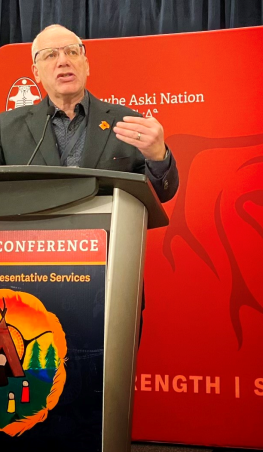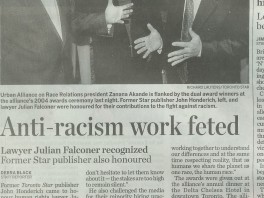

In the case of R. v. Williams, the accused, an Aboriginal man, pleaded not guilty to a robbery charge and elected a trial by judge and jury. The trial judge at the first trial allowed questions to be put to potential jurors but the Crown successfully applied for a mistrial on the basis of procedural errors and the “unfortunate publicity” of the jury selection process. At the second trial, the judge who heard the accused’s motion for an order permitting him to challenge jurors for cause dismissed the motion. The Supreme Court held that the prosecution and the defence are entitled to challenge potential jurors for cause on the ground of partiality. Julian Falconer and Julian Roy acted on behalf of the Urban Alliance on Race Relations.
Related Documents




